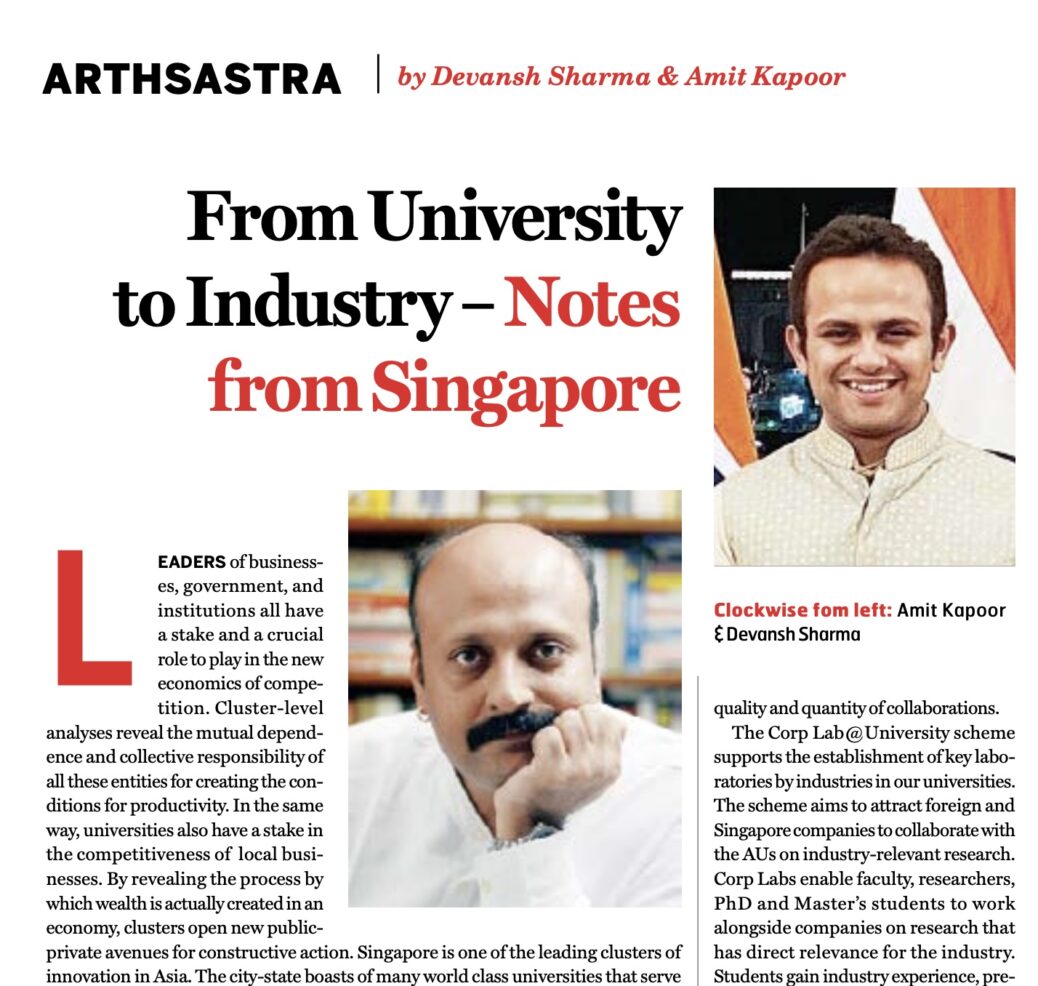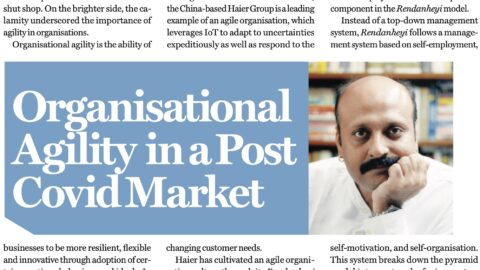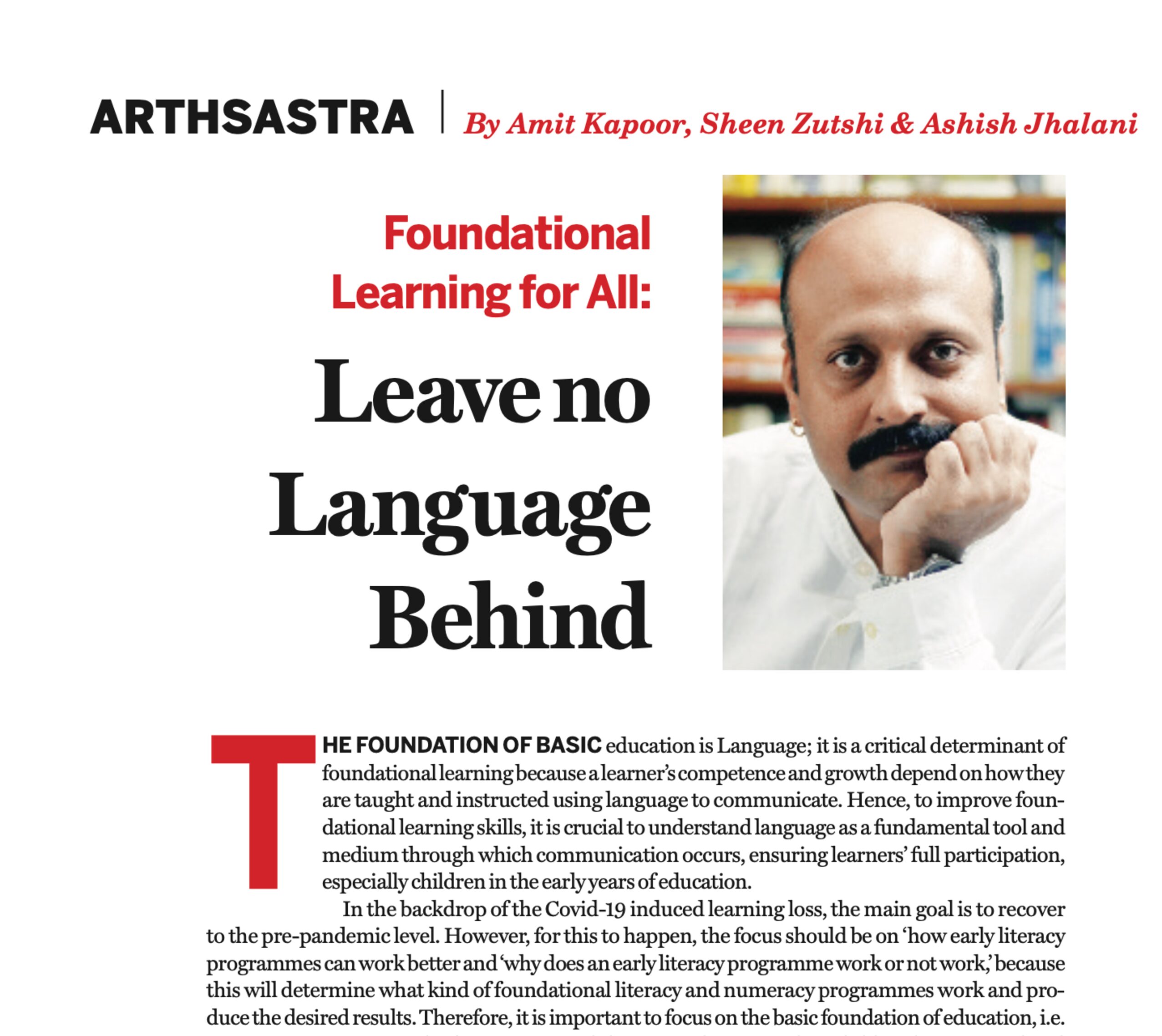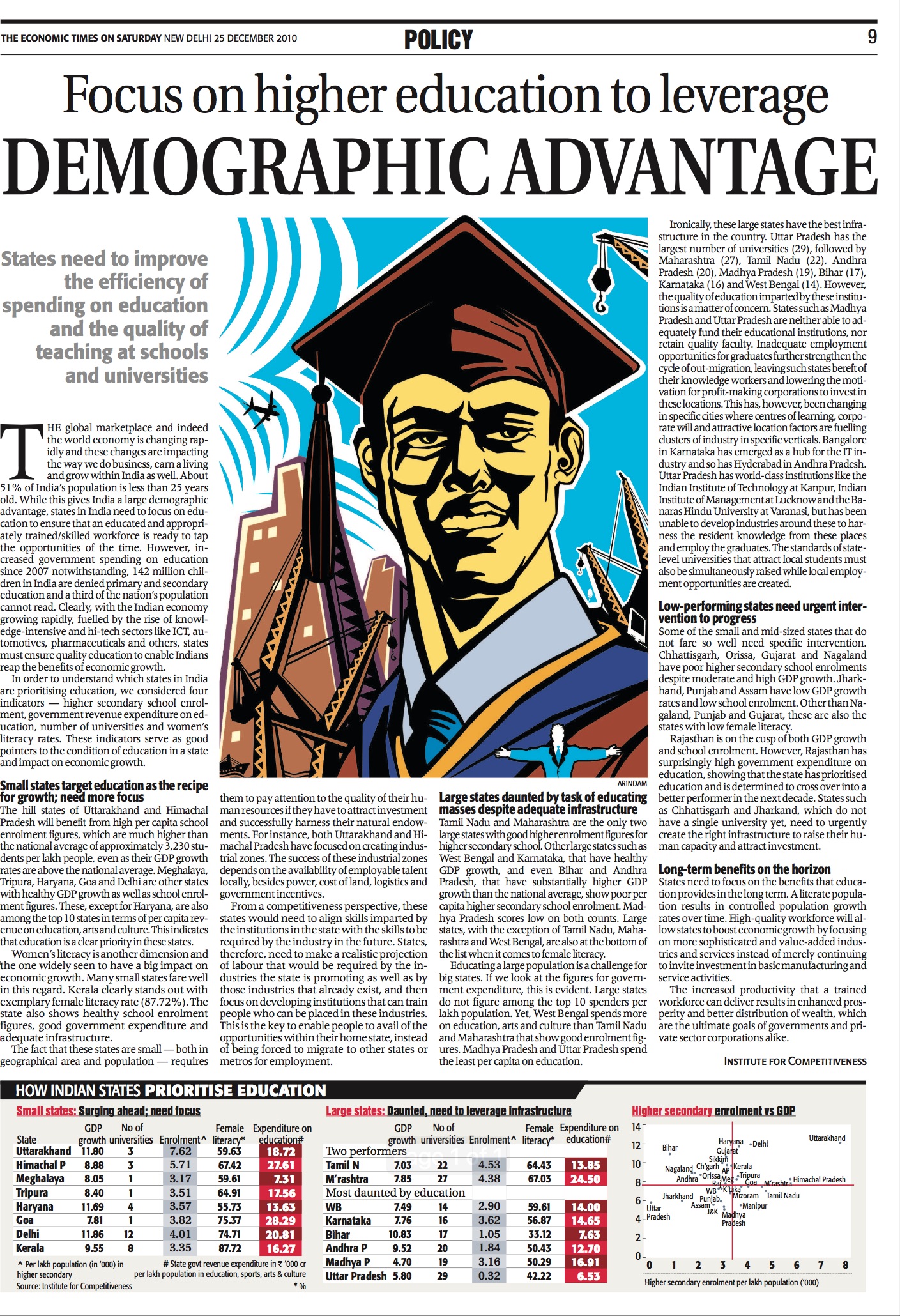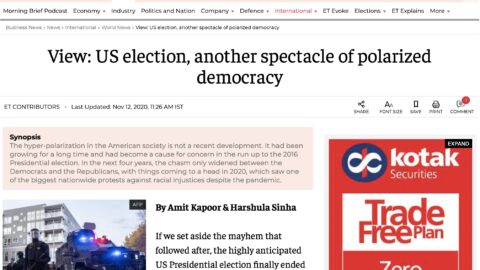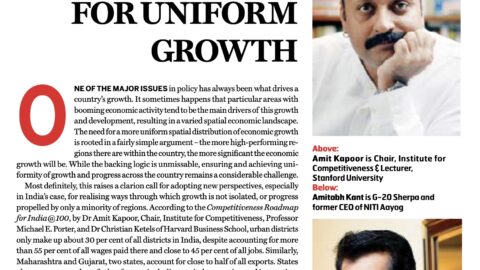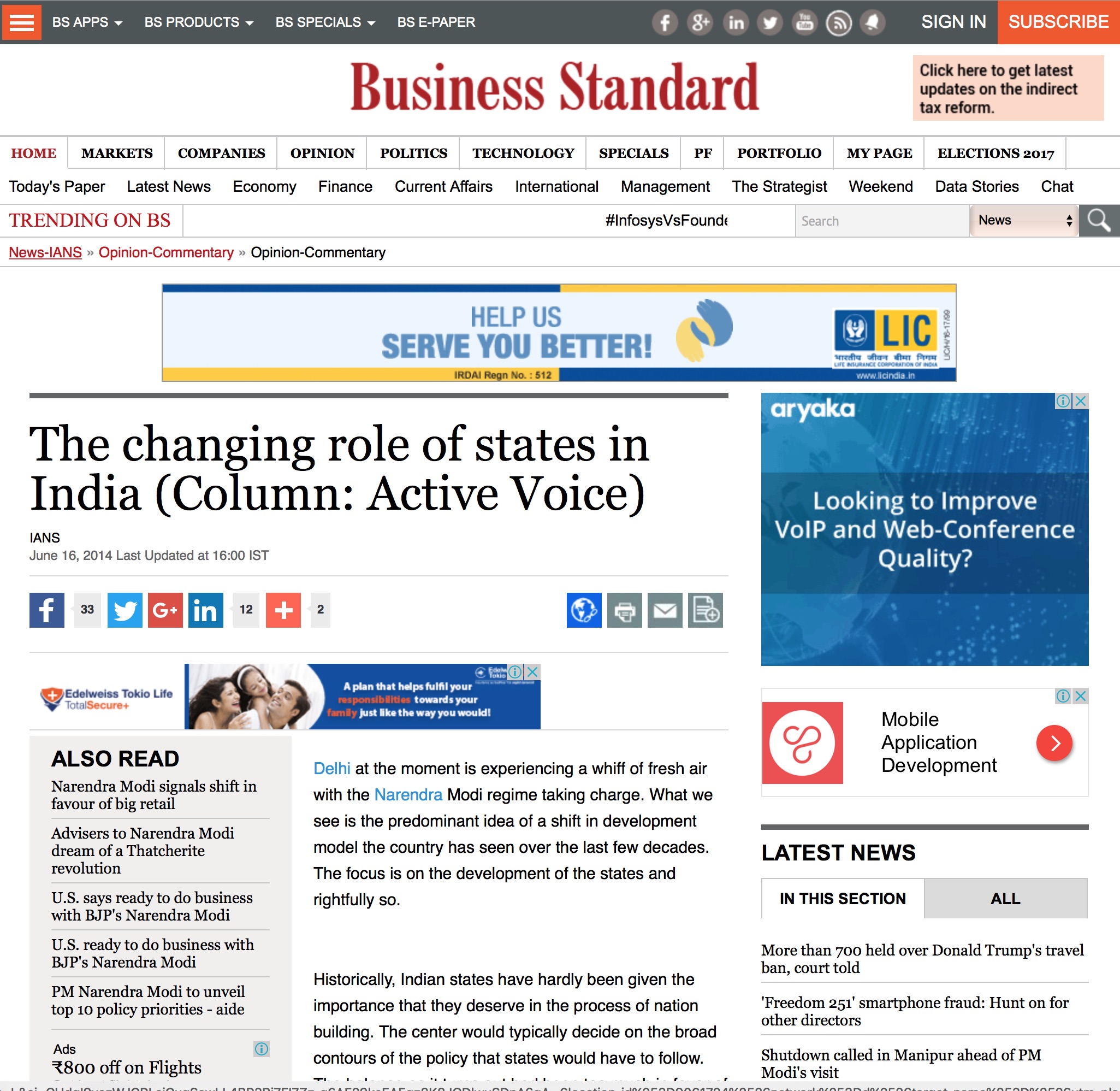By Amit Kapoor and Devansh Sharma
Leaders of businesses, government, and institutions all have a stake and a crucial role to play in the new economics of competition. Cluster-level analysis reveal the mutual dependence and collective responsibility of all these entities for creating the conditions for productivity. In the same way, universities also have a stake in the competitiveness of local businesses. By revealing the process by which wealth is actually created in an economy, clusters open new public-private avenues for constructive action. Singapore is one of the leading clusters of innovation in Asia. The city-state boasts of many world class universities that serve as incubators of talent, research, and innovation, such as National University of Singapore (NUS), Nanyang Technological University (NTU), Singapore Management University (SMU), Singapore University of Technology and Design (SUTD), and the Singapore Institute of Technology (SIT). Though these universities are publicly-funded higher education institutions corporatized with a “Board of Trustees” that is appointed by the government, they have the autonomy to decide on their strategies and directions. They are also referred to as Autonomous Universities (AU).
Besides providing them with financial support, the government has extensively worked with the AUs and local corporations to create a robust cluster of innovation. It is pertinent to, therefore, look how the government facilitates this collaborative relationship between the AUs and the industry, and how these collaborations play out with respect to research and entrepreneurship. The Singapore Government pursues a multi-agency effort to create an environment that is conducive to fostering stronger university-industry ties. In addition to the Ministry of Education (MOE), the Ministry of Trade and Industry (MTI) works closely with industry to understand their needs and concerns; while the Ministry of Manpower (MOM) also plays a supporting role in striving to develop a productive workforce and progressive workplaces. These Ministries work in close consultation with each other to develop schemes that will improve the quality and quantity of collaborations.
The Corp Lab@University scheme supports the establishment of key laboratories by industries in our universities. The scheme aims to attract foreign and Singapore companies to collaborate with the AUs on industry-relevant research. Corp Labs enable faculty, researchers, PhD and Master’s students to work alongside companies on research that has direct relevance for the industry. Students gain industry experience, preparing them for employment in high value-add sectors. The National Research Foundation (NRF) runs this scheme and provides funding to the Corp Labs (NRF Singapore). The Singapore-Industry Scholarship (SGIS), which is offered by MOE, and other government agencies, aims to develop a strong core of Singaporeans to anchor strategic sectors critical to Singapore’s economic and social development. This forms a special partnership between the Singapore Government and Singapore enterprises. Awarded scholars can pursue their undergraduate degrees at any local AU, and after their graduation, they must work for a stipulated number of years at their sponsoring company. The Industrial Postgraduate Programme (IPP) is an initiative by the Economic Development Board (EDB) of Singapore to develop a pool of postgraduate manpower with the essential and critical R&D skill-sets for roles in the industry. IPP trainees undergo training in a corporate R&D environment through EDB’s partnership with companies and locally-based universities.
The AUs play an important role in bridging the needs of industry with the outcome of research. NUS and General Electric set up the Singapore Water Technology Centre back in 2009 with a USD 100 million investment (General Electric). The NUS has also set up joint labs with the leading tech companies Cisco (Cisco-NUS Accelerated Digital Economy Corporate Laboratory) and Applied Materials (Applied Materials-NUS Advanced Materials Corporate Lab), both of which are funded by the NRF. The NTU has partnered with BMW to run an electromobility research programme, which started out with using the all-electric BMW i3 and plug-in hybrid sports car BMW i8 as research platforms (BMW Group). Similar to NUS, they set up a corporate laboratory with Rolls Royce (NTU Singapore). Going beyond the automobile sector, the NTU has also partnered with Lockheed Martin to research nanotechnology.
Another crucial pillar in the partnership between academia, industry and government is entrepreneurship. Specifically, a stellar example of this deep collaboration in the field of entrepreneurship is the Lean Launchpad Program (LLP). Piloted by NUS Enterprise as the first entrepreneurial education programme for researchers, the program was launched in 2013 to help research scientists and engineers turn their inventive technologies into commercially viable products and feasible business ventures. Modeled on the US National Science Foundation I-Corps programme and taught at Stanford, Berkeley, Columbia, the programme is adapted for the local context, designed as an evidence-based innovation platform for the commercialization of deep technologies. With new funding from 2017-2022 by the NRF, the AUs are working together to create a national LLP platform combining educational efforts, entrepreneurial talents and technology to facilitate the commercialization of technologies out of academic research. New LLP satellite nodes have been established in NTU, SUTD, and SMU. To access an overseas market, LLP graduating teams are eligible for a grant of up to SGD$10,000 to support further market validation work overseas related to their project. The grant will be administered by NUS, co-funded by the respective institutions, and NRF.
Singapore has developed a model in which the government facilitates a deeply collaborative relationship between academia and industry, with both powering the other. Right from the SGIS at the undergraduate level to Corp Labs at the institutional level, the Singaporean government has ensured that no aspect of higher education is left unexposed to the industry. It is this interplay between the government, industry, and university that has led to multiple benefits: improving graduate outcomes in employment, increasing productivity in the workforce, and supporting economic growth. India and other countries in the developing world should incorporate lessons from this model in their own national plans.
The article was published with Business World.

